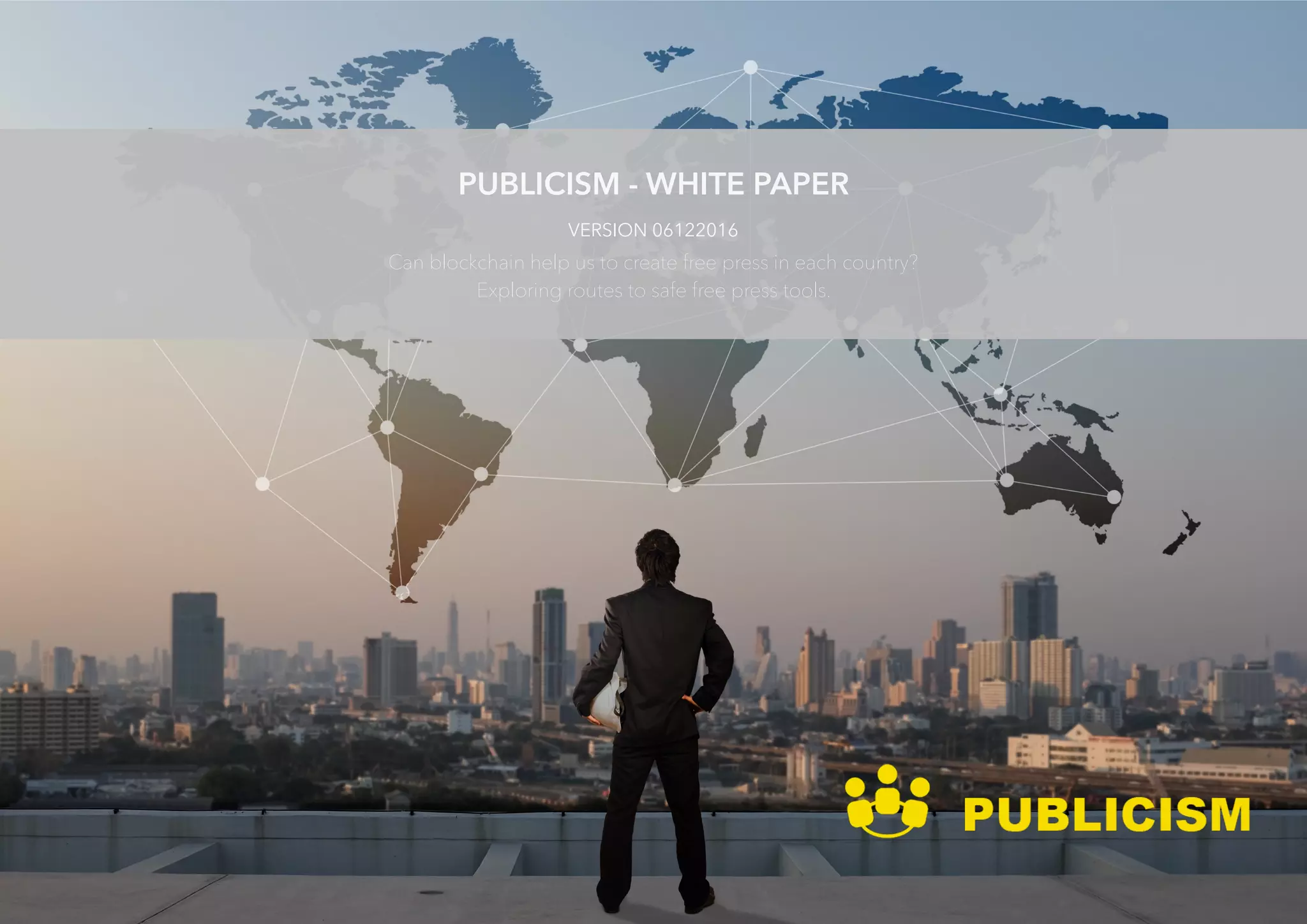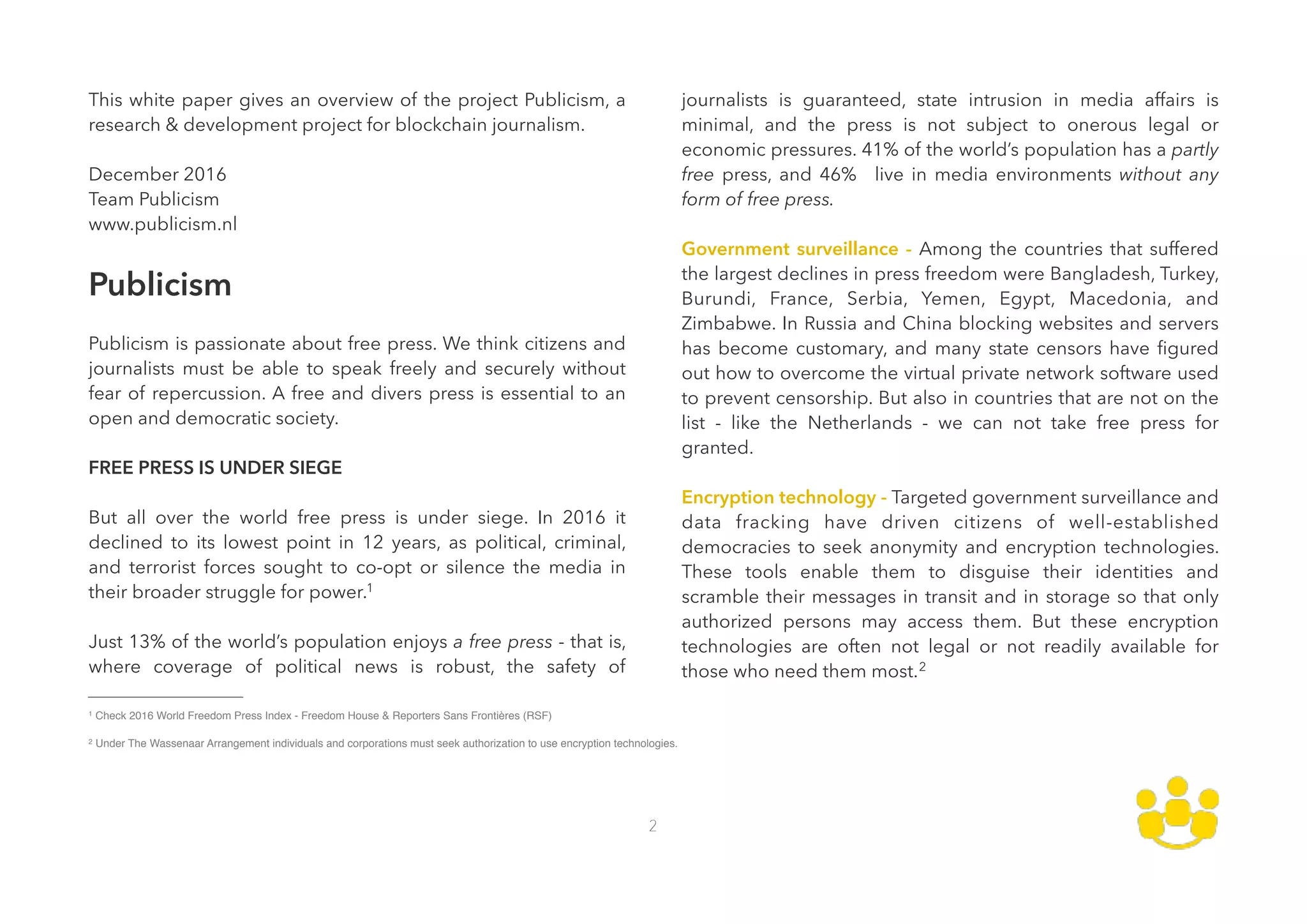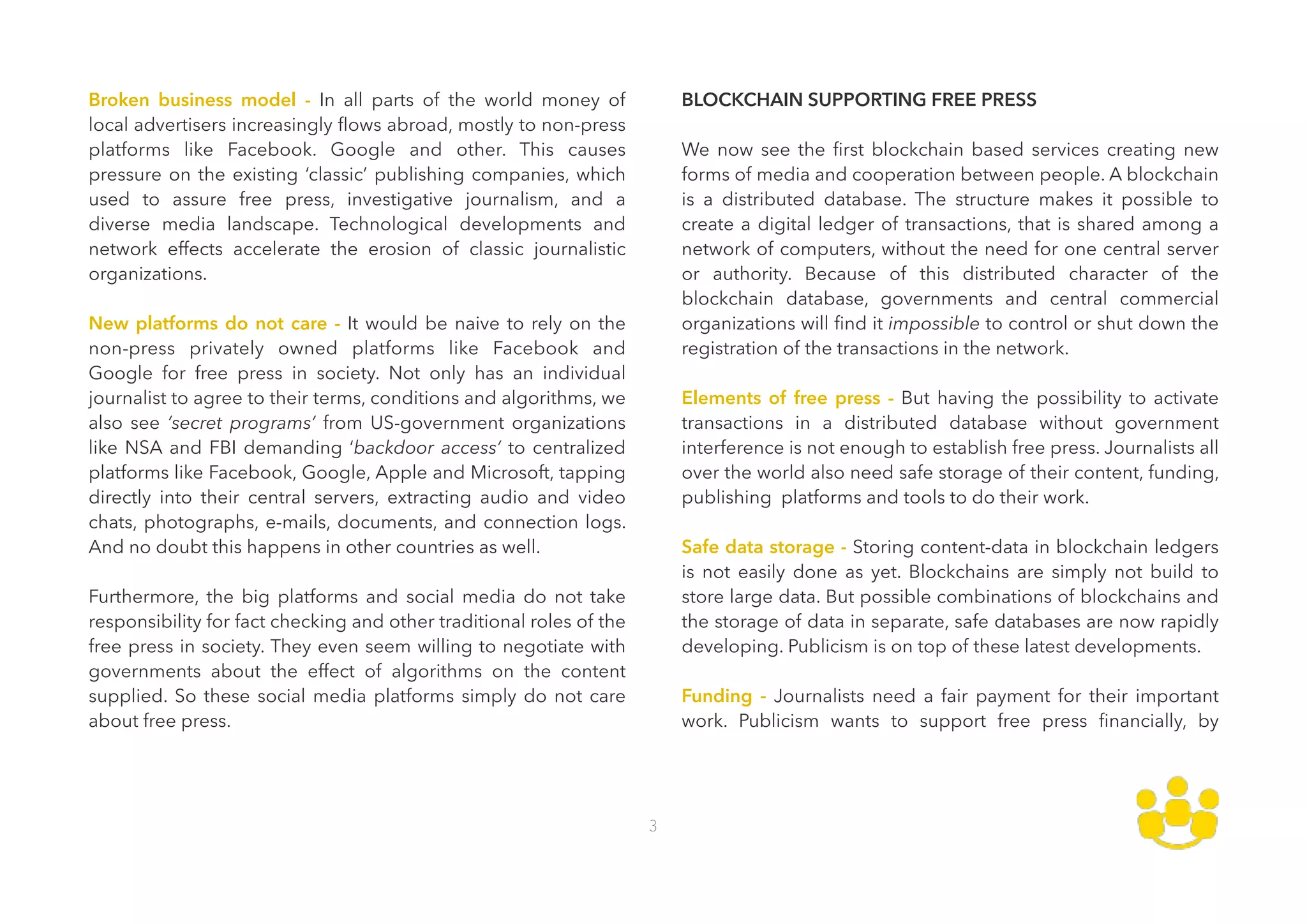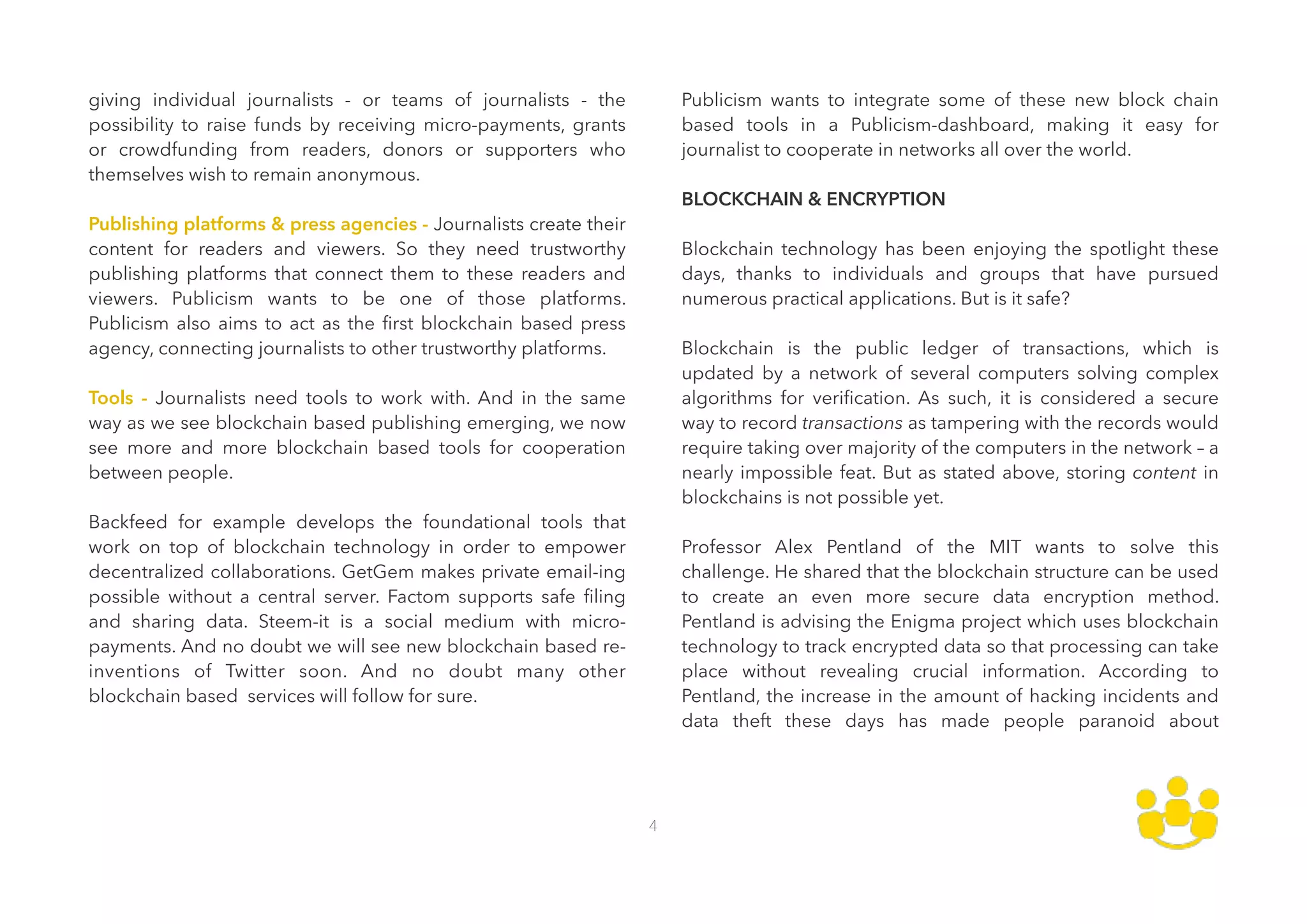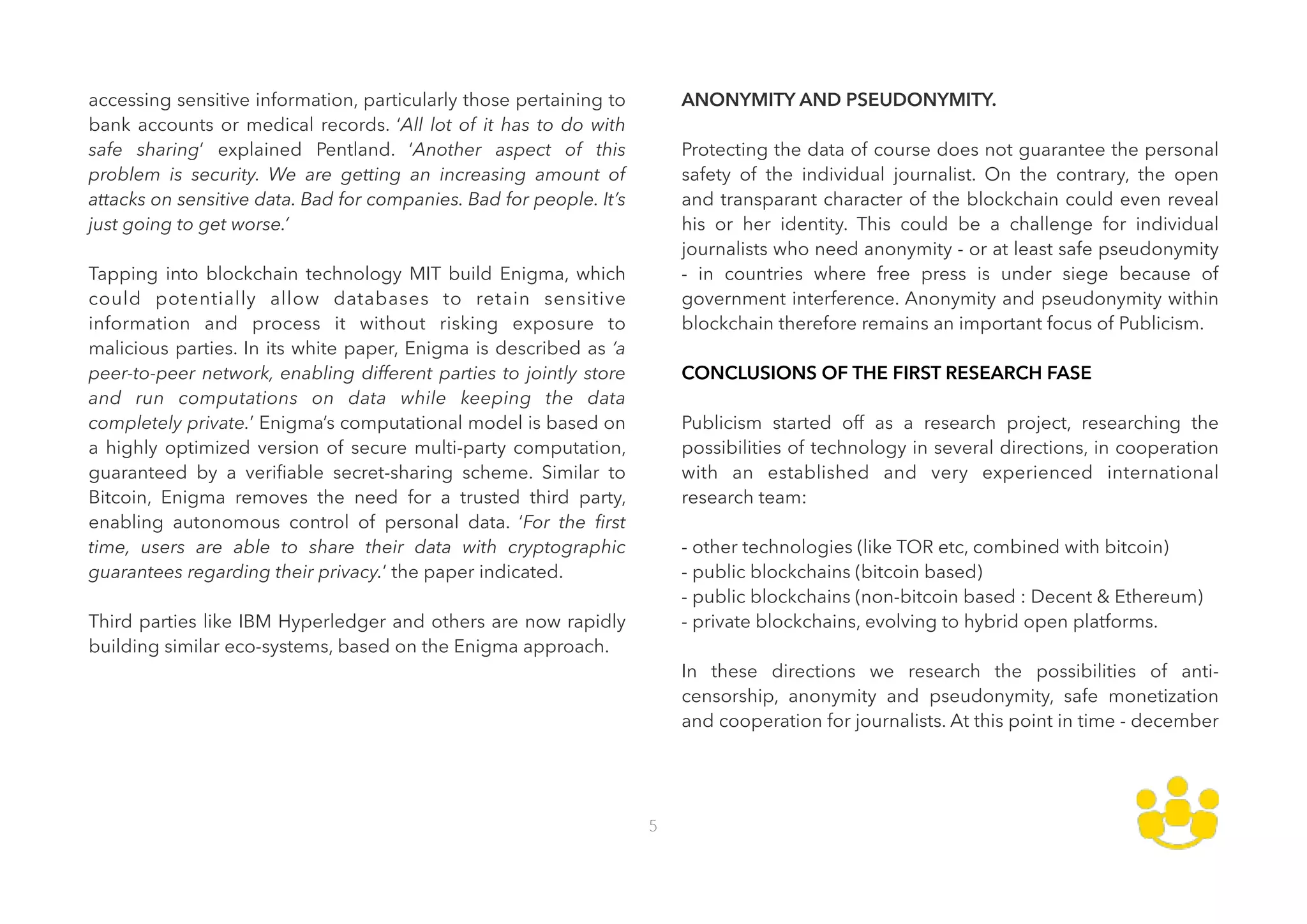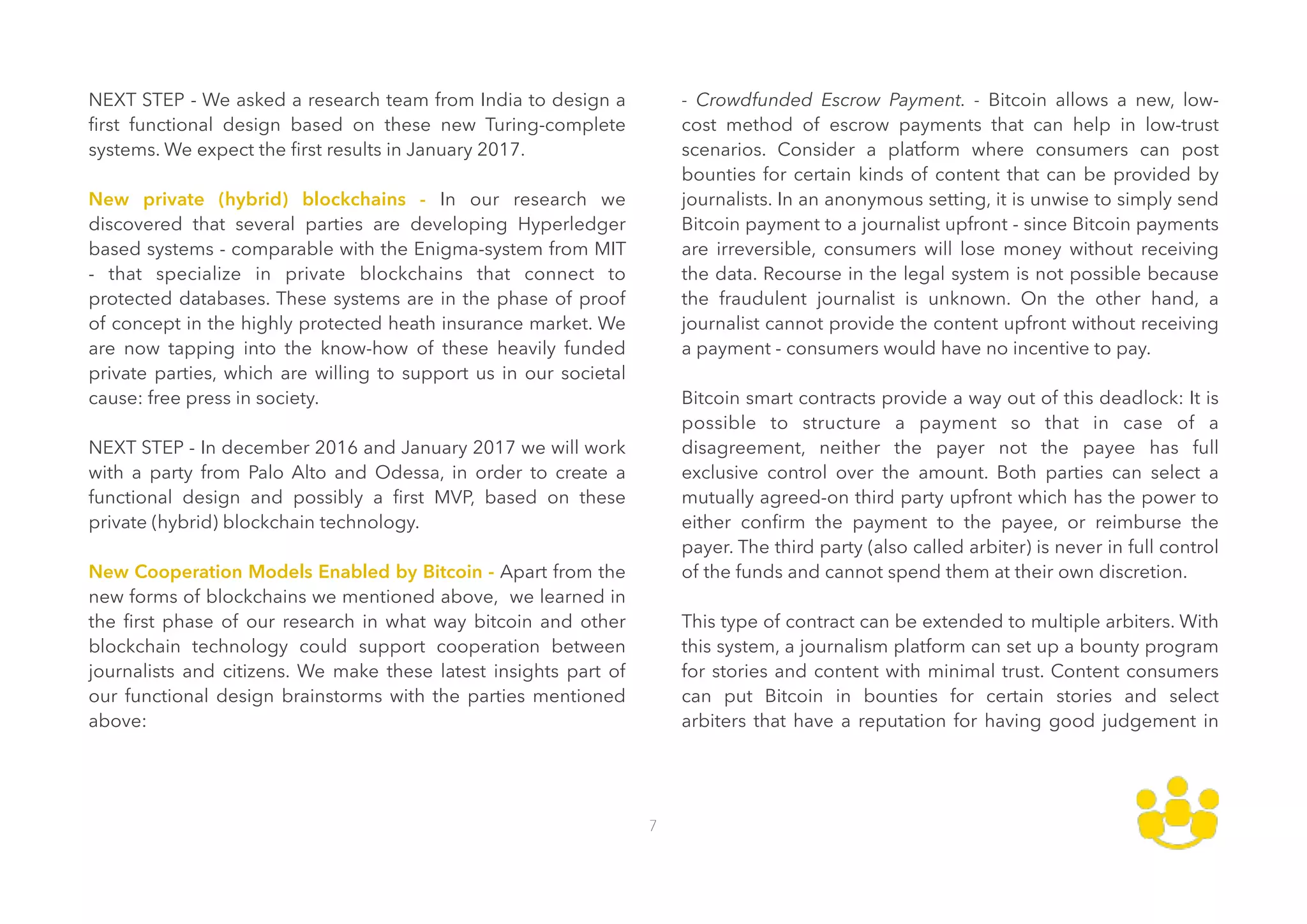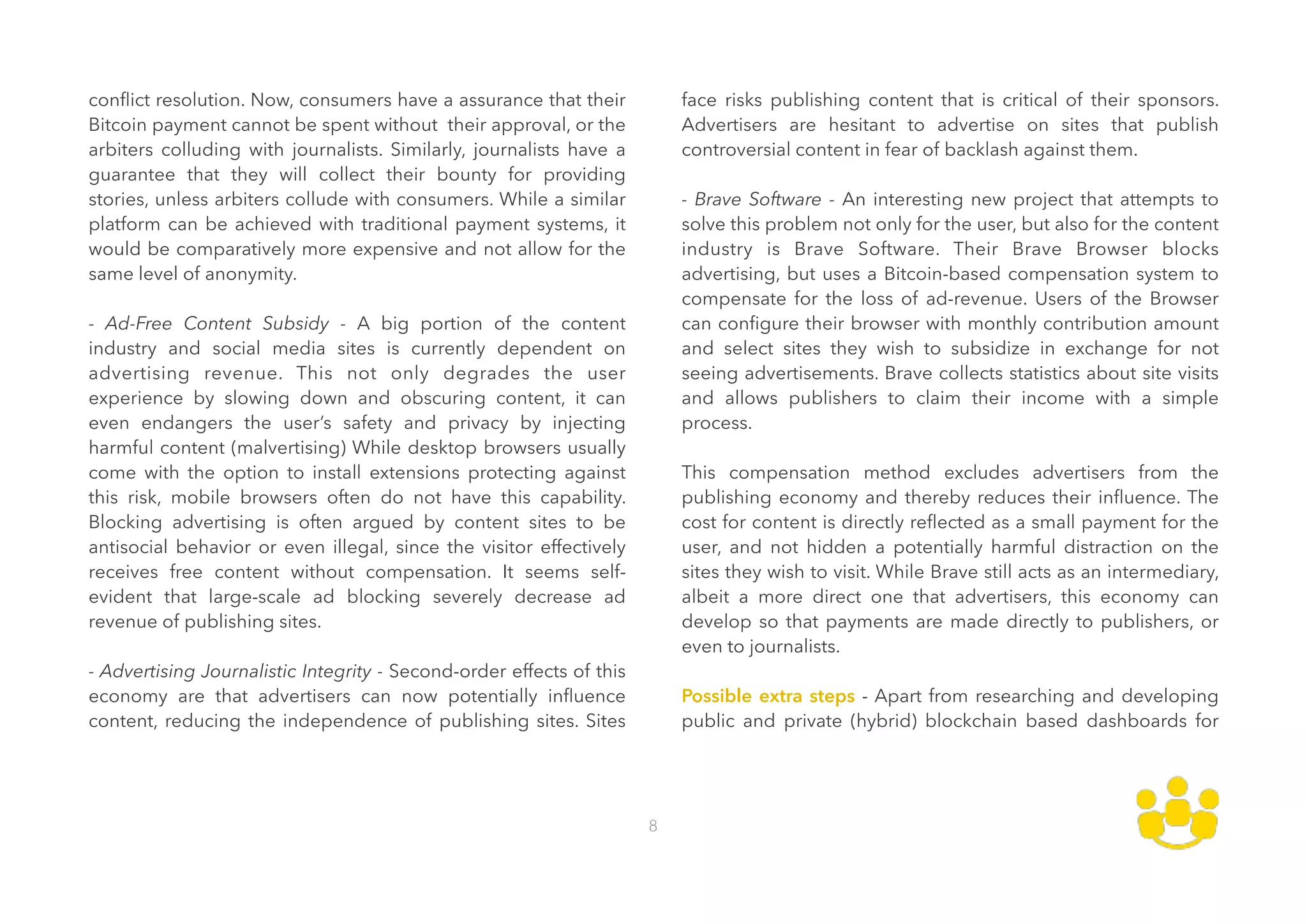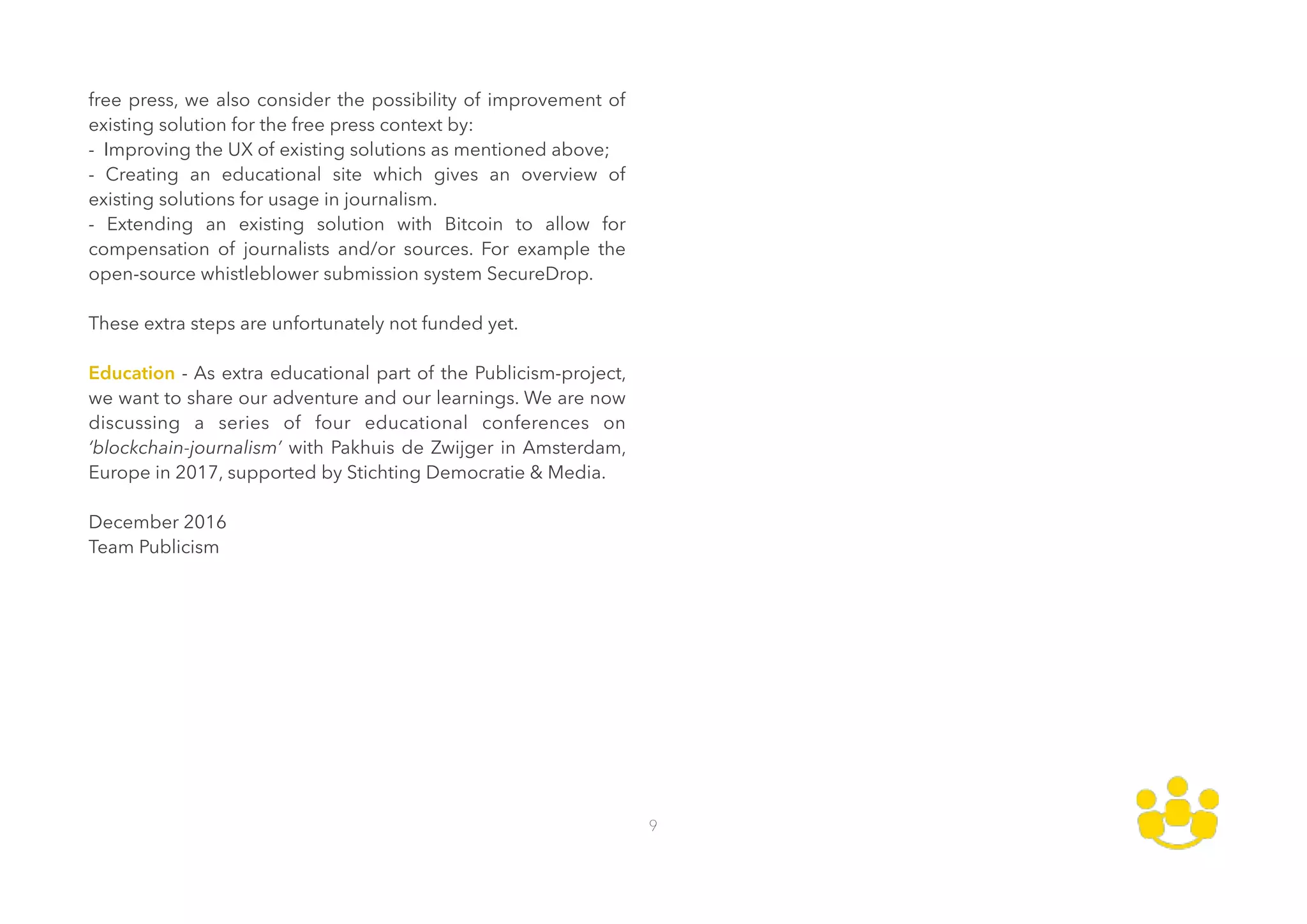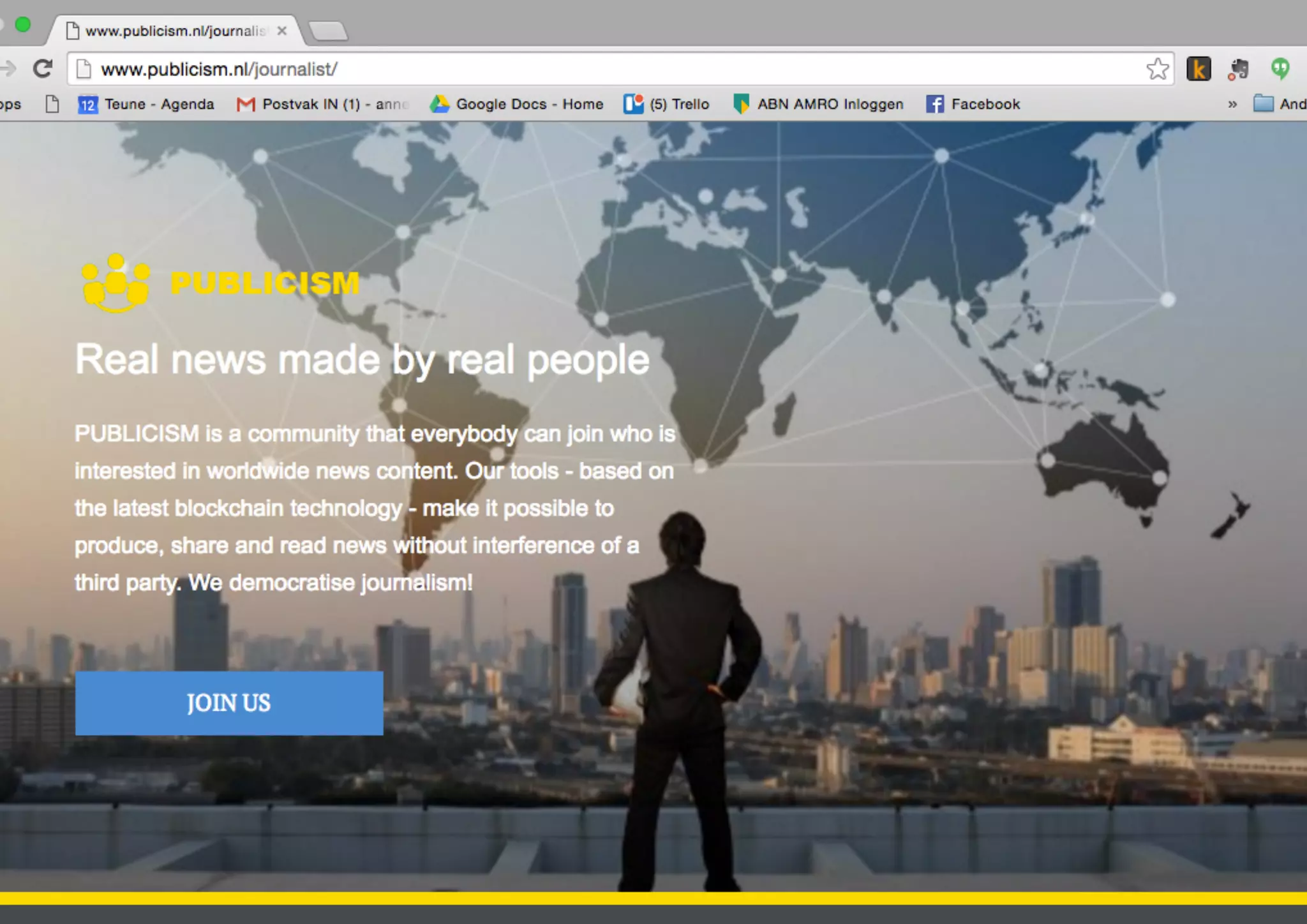This white paper discusses how blockchain technology could help support free press around the world. It notes that free press is under threat in many countries due to government censorship and surveillance, as well as economic pressures from broken business models. The paper explores how blockchain could help by providing censorship-resistant platforms for publishing, tools for anonymous cooperation between journalists, and new funding models like micro-payments and crowdfunding. It outlines several approaches being researched, including using private blockchains and new technologies like Zcash to better protect journalists' identities and data. The goal is to design blockchain-based tools and platforms that can help establish free press in places where it is currently not guaranteed.
